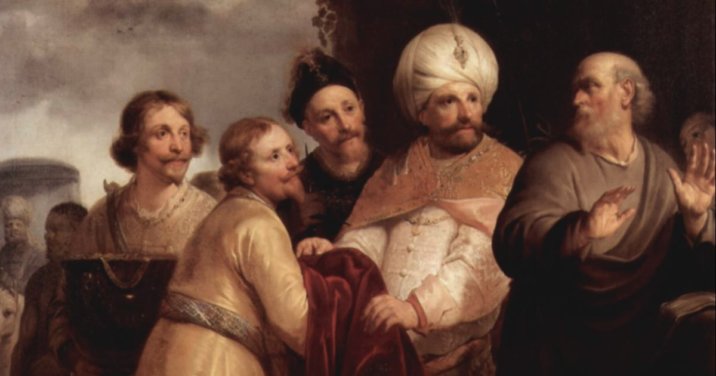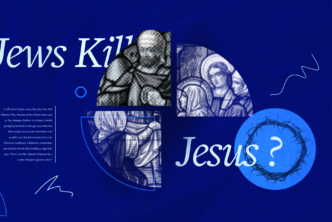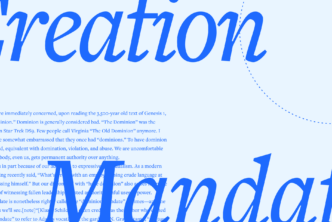Elisha’s healing of Naaman in the Bible (the leper [and] commander of the army of the king of Syria) is a familiar story to many (2 Kgs 5:1–27). Naaman hears that Elisha, the prophet of Israel, can heal him, so he makes the trip. When the two meet, Elisha tells him rather dismissively that he needs to take a bath in the Jordan River. Naaman doesn’t take this well and prepares to go home. At the behest of some servants, he consents to dip himself in the Jordan. He is miraculously healed by the simple act. The display of power, so transparently without sacrifice or incantation, awakens Naaman to the fact that Yahweh of Israel is the true God. Here’s where the story usually ends in our telling, but that would result in the omission of one very odd detail—what Naaman asks to take back home.
Two mules and a pile of dirt
In 2 Kings 5:15–19, the elated Naaman returns to Elisha and begs him to take payment for healing him. Elisha repeatedly refuses. Finally, before embarking for Syria, Naaman makes a strange request: to load two mules with dirt to take back with him.
Dirt? I can think of a few favors I would ask of a prophet in a receptive mood, but dirt certainly isn’t one of them. The request is so odd that it’s hard to avoid wondering if Naaman needed some other kind of therapy. Why would he ask for dirt?
But Naaman was completely in his right mind. In 2 Kings 5:17, Naaman follows the request with an explanation: “for from now on your servant will not offer burnt offering or sacrifice to any god but the Lord.” The dirt and Naaman’s new allegiance to the God of Israel are related. Naaman was a man with significant duties in his home country. He couldn’t stay in Israel, but he could take Israel with him. Why would he want to?
The cosmic turf war
Naaman’s unusual request stems from the ancient—and biblical—conception that the earth is the locale for a cosmic turf war. Naaman wanted dirt from Israel because Israel was Yahweh’s territory. The dirt which is Yahweh’s domain is holy ground.
The idea of “holy ground” is an important element of Israelite theology. This phrase is used when Moses is in the presence of the Angel of the Lord and the God of Israel at the burning bush (Exod 3:1–5) and when Joshua meets the Angel of the Lord (Josh 5:15). More broadly, the idea derives from Deuteronomy 32:8–9 (compare Deut 4:19–20), where we learn that when God divided up the nations at the Tower of Babel, they were allotted to “the sons of God.” The nations of the world were, in effect, disinherited by Yahweh as his own earthly family. Immediately after Babel, Yahweh called Abraham and the nation of Israel was created. Israel was therefore “Yahweh’s portion” (Deut 32:9), whereas all the other nations belong to the sons of God whom Israel was forbidden to worship. As a result, Israel was holy ground; the territory of every other nation was not. The rest of the Old Testament is the story of God’s intention to reclaim every nation on earth.
Elisha understood Naaman’s request and granted it without hesitation. He knew the request came from a sincere theological change of heart. Naaman believed that “There [was] no God in all the earth but in Israel” (2 Kgs 5:15) and wanted to return to his homeland with holy ground. Even though he would still have to help his aged king bow before Rimmon, Naaman wanted Elisha to know his heart belonged only to the God of Elisha.
This excerpt about Naaman in the Bible is adapted from the original article in Dr. Heiser’s book I Dare You Not to Bore Me with the Bible. It has been lightly edited.
Get the free Bible app from Logos
Compare translations, take notes and highlight, consult devotionals and commentaries, look up Greek and Hebrew words, and much more—all with the help of intuitive, interactive tools.
Get it today—no credit card required!
Related articles
Related resources






